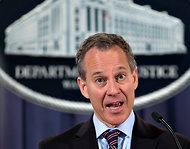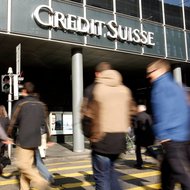The Institute for Supply Management said on Thursday that its index of factory activity jumped to 55.4 percent in July from 50.9 percent in June. A reading above 50 percent indicates growth. The I.S.M. is a trade group of purchasing managers.
A gauge of production soared 11.6 points to 65 percent, the highest reading since May 2004. And a measure of hiring at factories rose to its best level in a year — the latest of several encouraging signs ahead of the July employment report, which will be released on Friday.
“The report builds the case for a second-half speedup in U.S. industrial production,” said Jonathan Basile, an economist at Credit Suisse.
Stronger growth at American factories could aid a sluggish economy that has registered tepid growth over the last three quarters. And it could provide crucial support to a job market that has begun to accelerate but has added mostly lower-paying service jobs.
Businesses are placing more orders that are likely to be filled in the next few months. Steady gains in new-home sales and construction are supporting strong growth in industries like wood products, furniture and electrical equipment and appliances. And healthy auto sales are lifting growth in the production of metal parts and components.
Bradley Holcomb, chairman of the institute’s survey committee, said production would probably fall back a bit after its big jump in July. Some of the gain reflects a reduction in backlogged orders, he said.
Still, the big increase in new orders suggests that output growth will remain steady.
The Federal Reserve is likely to take note of the manufacturing gains. It downgraded slightly its assessment of the economy after its policy meeting this week. That led to speculation that the Fed might continue its bond purchases longer than anticipated.
But Fed officials say they are hopeful that growth will pick up in the second half of the year. And if factories continue to strengthen and add more high-paying jobs, the Fed might become convinced that the economy is on the right track. If so, it could reduce the pace of its bond-buying program later this year. The bond purchases have helped keep long-term interest rates low to encourage more borrowing and spending.
The health of the job market is crucial to the Fed’s decision. Other reports this week have been encouraging.
The Labor Department said the number of Americans applying for unemployment benefits fell last week to a five-and-a-half-year low. Applications are a proxy for layoffs. When layoffs decline, it suggests companies are confident in their staffing levels and may add more workers.

Article source: http://www.nytimes.com/2013/08/02/business/economy/increased-factory-activity-may-bolster-recovery.html?partner=rss&emc=rss





